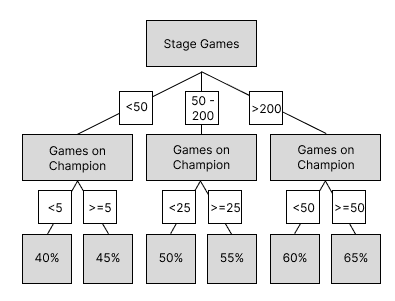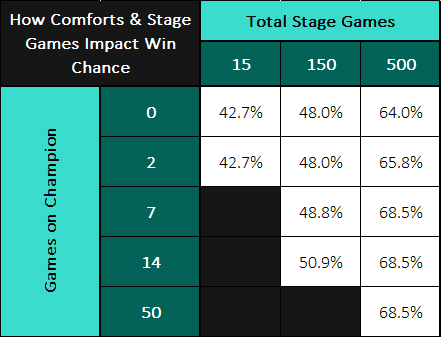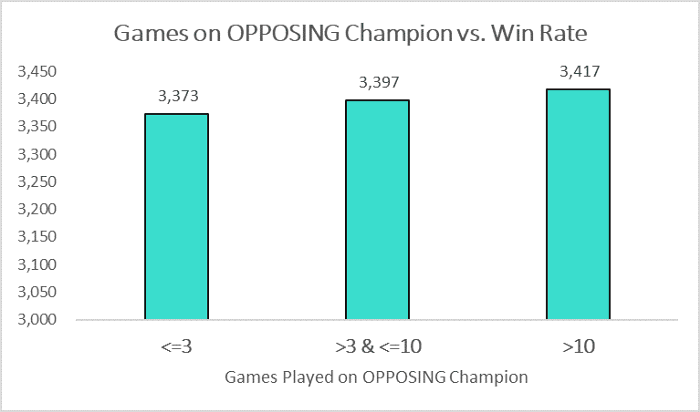LoL: Durability Changes in Pro Play — An Early Statistical Review
An analysis of the change to the League of Legends (LoL) meta following the durability changes in patch 12.10. How has it impacted esports?
Let us, once again, imagine you are the Head Coach of the infamous Canary Cuckoos of the CIL (Canarian Island League — completely fictional).
It’s Game 5 of the Grand Finals and the Draft has just begun.
You trade power-picks, strong counters and powerful duos. Now its your last pick and you’re blinding top lane. From your rigorous analyst of the meta you know the strongest Champions here are, in order of strength: Ornn, Aatrox, Gwen, Gangplank and Gnar.
Except, your Top laner is a legendary Gnar specialist. He OTP’d it to Rank #1 in Season 9. He’s had 50 stage games on it. Of course, he’s comfortable with the other 4 options too — it’s just he’s really, really comfortable on that boomerang-throwing Yordle.
So, do we pick the theoretically strongest Champion, Ornn, or do we take the weaker yet more comfortable pick in Gnar?
Side Note: OK, play along here — anyone who even briefly thinks about these sort of things knows there’s WAY more to consider than just “Champ Strong” vs. “Player Comfort” but let’s keep it simple.
The question we’ll be looking at today is simple: how much do comforts matter, really?
(Stick around to the end to see how this could impact your Solo Queue games!)
The Data Preamble
Before we jump into Champion comforts specifically, there’s something that needs to be immediately called out:
The More Games Played, The Higher The Win Rate
That is, a player who has had 100 stage games has a greater chance of winning their next game than someone with 10 stage games. From my modelling, it’s about 3–4% more likely on average across all lanes.
There’s a few reasons that could explain this:
Because there’s no point simply correlating a players comfort on a champion to their stage performance if we know the more games they’ve played on ANY champion is also causing it to increase (for the stats kids: issues of multicollinearity).
Let’s take a look at Caps. He’s had over 500 stage games in his career. 14 of those were on Irelia. For a player with 50 games, 14 on one Champion would practically make you a professional OTP. For Caps, it’s not even in his top 12 most played (..it’s his 13th).
Therefore, we can’t just plug “games on Champion” next to “game result”, because we don’t know if the “games on Champion” part is high because it’s a rookie on his OTP or a veteran playing any old champion.
If you are thinking how to solve this — your first thought might be to use the percentage of their games they’ve played that Champion (games on Champion / total games). The reason this won’t work is because the rookies will always have a higher percentage values than the vets. A first-timer on opening weekend locks in Ryze and now it’s a 100% pick percentage. If Caps locked in Ryze it’ll be <10%, even though he’s had lots of games on him.
If comparing between players then: higher percentage = bad. For an individual player: higher percentage = good. Therefore, we cannot aggregate them since this relationship contradicts itself.
Like the environmental crisis, the solution involves tress.
Decision trees to be specific and extreme gradient-boosted trees to be even more specific. Don’t worry, we won’t go any further into the weeds than that. There’s plenty of resources out there if you are interested (See this StatQuest video to start you off).
The simplified summary is that these “trees” will bucket similar veterans together, then look at how Champion comforts impact their win rate. It then does the same for rookies. And everyone in between.
Like so (extremely simplified and numbers for illustrative purposes only):

An extremely simplified decision tree.
This way, a highly experienced veteran will always have a higher baseline (60%), but we’ll still see the value of having more games on a certain pick (65%).
After training the model, here’s how it stacks up:

Win Rate Matrix for Total Stages Games & Games On Champion
The top row is as expected, the more stage games the player has the better their chance of winning the game.
For rookies (first column, ~15 games), it doesn’t seem to matter whether you’re stage-first-timing or not, with both at 42.7%. This also makes sense, if it’s your second ever game, that one you played Ryze yesterday doesn’t mean anything about your comforts.
On the other hand, for Veterans (~500 games) there’s a significant leap in just having 2 games on the Champion. This again, also makes sense. If you’ve had 500 games and you’ve never once played Viego, you probably don’t like playing Viego, otherwise you would have by now (not a perfect rule, but works in general).
Although, there seems to be quite fast diminishing returns. The model doesn’t identify any statistically significant difference between a Veteran with 7 games on a Champion or 50.
The Champion the player is on is only half the story, or more accurately, it’s 1/10th of the story. Does understanding your opposite number’s Champion help?
Let’s be specific. Imagine our Gnar OTP is actually playing Gangplank, except his lane opposition is Gnar. Does all that stage experience help?
Since the 1:1 is going to mostly impact the laning phase, we’ll instead look at how it impacts Gold@10, as opposed to the final outcome. We’ll then limit this to veterans only, to remove the previously mentioned effect. Also, to simplify we’ll only look at Top & Mid, since they are the most isolated and trade dependent lanes.

How Games Played on OPPOSING Champion Impacts Gold@10 Metric.
NOTE: If you’re wondering why I split it at 3 & 10, it’s because that roughly puts an equal number of games in all three bars (just over 300 each).
So yes, knowing your lane opposition helps — kinda. There’s just enough games for the relationship to be significant. However, as a coach you probably wouldn’t not pick a Champion just because the enemy laner happens to have over 10 stage games on it. Sure, they’re on average 20G richer by 10 minutes but that doesn’t even get them an extra health potion.
Here’s a graph I made at the end of last year for an article I never wrote. I would have recreated it but the data takes literally days to gather and my promise is “One Article a Week”, not “One Article Every Week or So Depending How Much Data I Need To Get”.
It’s simple. Take a million Gold-ish elo games. See what Mastery level each player had and stick it into one of the buckets. Check the average win rates per bucket of mastery.

How Champion Mastery Impacts Ranked Solo Queue Win Rates (Gold Elo).
Prepare your Pikachu Faces.
The more mastery you have on a Champion the more ranked games you win.
Yes, by having more stage games on your Champion, the opposing Champion or just in general will all independently improve your chance of winning the game.
However, it’s one small piece of a very big and complex puzzle that we are slowly building up each week to the ultimate conclusion of the “How Do You Win Draft?”.
More importantly, stop **ing first timing in my ranked games.
Here are some other articles that may be of interest.
An analysis of the change to the League of Legends (LoL) meta following the durability changes in patch 12.10. How has it impacted esports?
Is it possible to predict the performance of a Champion in the LEC before they’ve played a single game? This challenge is about to answer that question!
Is it possible to use solo queue data to help analyse professional stage games played at the highest level of esports? What data is useful, and what isn’t? What do we need to consider?